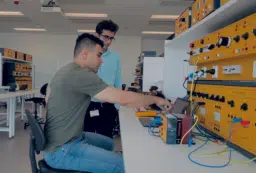Mosquitoes kill almost 450,000 people each year by spreading the deadly parasitic disease malaria. Dr Renly Lim from the University of South Australia is bringing a new weapon to the fight: drama.
Renly and her colleagues recognise that education is essential to stemming the spread of the disease, and they have developed a unique way to convince people in the world’s remote areas to receive treatment.
The researchers—from the University of Oxford, Mahidol Oxford Tropical Medicine Research Unit, the University of Amsterdam, the Battambang Provincial Health Department and Cambodia’s National Centre for Parasitology, Entomology and Malaria Control—toured 20 villages in rural Cambodia with a team of professional drama performers. Together, they conducted a series of two-and-a-half day workshops and evening drama performances that focused on malaria control and elimination.
“During the workshops the villagers shared their talents and personal stories,” says Renly. “In the performances children dressed as mosquitoes.”
The program also involved meeting with village leaders, working with village malaria workers and conducting local school activities to inform all parts of the community about the disease.
“Understanding the importance of malaria elimination is essential for getting comunities to participate in this global effort,” Renly says.
The tour was a success. An average of 84 per cent of villagers received anti-malarial drugs in the Bill and Melinda Gates Foundation and the Wellcome Trust’s mass administration drug trial, which was being conducted simultaneously.
“The project helped to raise people’s awareness,” said one participant from Vealroleum village.
“I want this drama (team) to come long-term. If they can, forever.”
Banner image: Children dressed as mosquitoes. Credit: Nicky Almasy at N/A Productions





 Fresh Science is on hold for 2022. We will be back in 2023.
Fresh Science is on hold for 2022. We will be back in 2023.